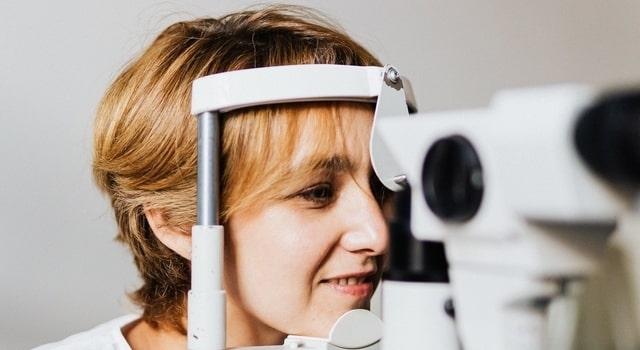
Diabetic eye disease is a group of eye conditions affecting people with diabetes, including diabetic retinopathy and diabetic macular edema. These conditions can lead to vision loss if left untreated. At Aspen Eye Care, we provide comprehensive eye exams to detect early signs and help preserve your vision.
What is Diabetic Eye Disease?
Diabetic eye disease encompasses multiple conditions that impact the eyes due to high blood sugar levels over time. Common diabetic eye diseases include:
- Diabetic Retinopathy: A condition where high blood sugar damages blood vessels in the retina, leading to vision issues.
- Diabetic Macular Edema (DME): Caused by fluid buildup in the retina, DME can distort central vision.
- Glaucoma: Diabetes can increase the risk of glaucoma, damaging the optic nerve.
- Cataracts: People with diabetes are at greater risk of developing cataracts at an earlier age.
Early detection is crucial as these conditions often progress without symptoms in the initial stages.
Early Symptoms and Risk Factors
Identifying symptoms early can be challenging, as diabetic eye disease may initially present with little to no signs. As it progresses, common symptoms can include:
- Blurred or distorted vision
- Dark spots in vision (floaters)
- Fluctuating vision
- Difficulty seeing at night
Risk Factors for Diabetic Eye Disease
The main risk factors for diabetic eye disease include:
- Duration of Diabetes: The longer you have diabetes, the higher your risk.
- Blood Sugar Levels: Uncontrolled blood sugar is a significant factor.
- Blood Pressure: High blood pressure can exacerbate damage to the eyes.
- Cholesterol Levels: High cholesterol may contribute to the progression of diabetic retinopathy.
At Aspen Eye Care, we emphasize the importance of regular eye exams, particularly if you have diabetes. Visit our Diabetic Eye Exams page for more information.
Importance of Regular Eye Exams
Routine eye exams are vital for detecting diabetic eye disease early. By scheduling regular check-ups, people with diabetes can stay ahead of potential vision issues and receive early treatment if necessary.
How to Prevent Vision Loss from Diabetic Eye Disease
Managing diabetes and related health conditions can significantly reduce the risk of developing eye complications. Key steps to preserve eye health include:
- Blood Sugar Control: Keep blood sugar within your target range.
- Blood Pressure and Cholesterol Management: Control these to reduce eye disease risk.
- Regular Eye Exams: Detect early signs of damage and take preventive measures.
Sherwood Park Eye Care’s Comprehensive Diabetic Eye Services
At Aspen Eye Care, our experienced team uses advanced imaging and diagnostic tools to assess your eye health and monitor any changes. With regular check-ups and a proactive approach to diabetic eye care, we help protect your vision.
If you or a loved one has diabetes, schedule a comprehensive eye exam with Aspen Eye Care. Don’t wait for symptoms to appear—take charge of your eye health today!

Alternating Saturdays: 10-4 (please call)*
We are offering shopping hours on Saturdays (alternating).